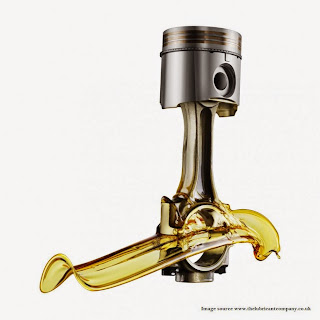Spinal Implants Devices Market Worth $13.8 Billion by 2025
The advancements in spine surgeries technologies, such as the
development of safer, more effective, advanced, simple, and easy-to-use
spinal implants and devices; the increasing incidence of spinal
disorders; and the launch of advanced bone grafting products are some of
the key factors driving the growth of the Spinal Implants Devices
Market.
According to the new market research report the Spinal Implants Devices Market is projected to reach USD 13.8 billion by 2025 from USD 10.3 billion in 2019, at a CAGR of 5.0%.
Download PDF Brochure: https://www.marketsandmarkets.com/pdfdownloadNew.asp?id=712
The
spinal fusion and fixation technologies segment accounted for the
largest share of the Spinal Implants Devices Market in 2019.
On
the basis of technology, the Spinal Surgery Devices Market is segmented
into spinal fusion and fixation, vertebral compression fracture
treatment, motion preservation/non-fusion, and spinal decompression
technologies. The spinal fusion and fixation technologies segment
accounted for the largest share of the market in 2019. The large share
of this segment can be attributed to the rising incidence of target
diseases (such as degenerative disc disease and spinal stenosis) with
the growing geriatric population across the globe, a growing number of
spinal fusion procedures, and technological advancements in spinal
fusion techniques and bone grafting procedures.
The open surgeries segment accounted for the largest share of the Spinal Implants Devices Market in 2019.
Based
on the type of surgery, the market is segmented into open and minimally
invasive surgeries. The open surgeries segment accounted for the
largest share of the Spinal Surgery Devices Market in 2019. The large
share of this segment can be attributed to the increasing preference for
open spine surgeries among medical professionals, rising incidence of
spinal deformities, and technological advancements in spinal fusion
surgeries. In addition, some spine procedures, such as spinal implant
insertions, can only be done through open surgeries, which is another
major factor supporting market growth.
The thoracic fusion and
lumbar fusion devices segment accounted for the largest share of the
Spinal Surgery Devices Market in 2019.
Based on product, the
market is segmented into thoracic fusion and lumbar fusion devices,
cervical fusion devices, spine biologics, non-fusion devices, vertebral
compression fracture treatment devices, spinal decompression devices,
and spine bone stimulators. The thoracic fusion and lumbar fusion
devices segment accounted for the largest share of the market in 2019.
The large share of this segment can be attributed to the increasing
incidence of lumbar degenerative disc disease and the growing number of
product launches.
The major players operating in the Spinal
Surgery Devices Market are Medtronic (Ireland), DePuy Synthes (US),
NuVasive, Inc. (US), Stryker Corporation (US), B. Braun Melsungen AG
(Germany), Zimmer Biomet Holdings, Inc. (US), Globus Medical, Inc. (US),
Orthofix International N.V. (US), Abbott Laboratories (US), RTI
Surgical, Inc. (US), Boston Scientific (US), SeaSpine Holdings
Corporation (US), ulrich GmbH & Co. KG (Germany), Spineart
(Switzerland), Kuros Biosciences AG (Switzerland), Bioventus, LLC (US),
Colfax Corporation (US), Meditech Spine, LLC (US), and Implanet
(France).
Get Report Sample: https://www.marketsandmarkets.com/requestsampleNew.asp?id=712
North America dominates the Spinal Implants Devices Market.
The
Spinal Implants Devices Market is segmented into five regional
segments, namely, North America, Europe, the Asia Pacific, Latin
America, and the Middle East & Africa. The large share of the North
American market can be attributed to its highly developed healthcare
infrastructure and reimbursement systems and high patient awareness and
physician education. However, the Asia Pacific market is estimated to
grow at the highest CAGR during the forecast period, primarily due to
the improving healthcare infrastructure, rising awareness, improving
reimbursement scenario, and the growing insurance coverage in several
APAC countries.

Comments
Post a Comment